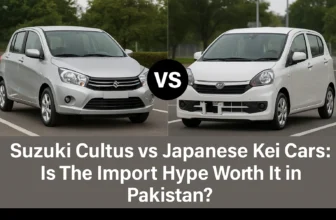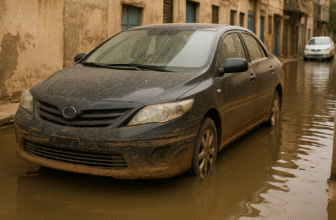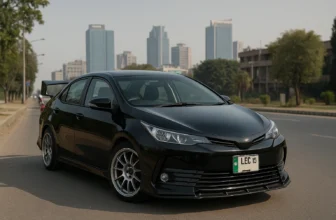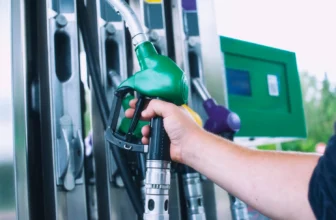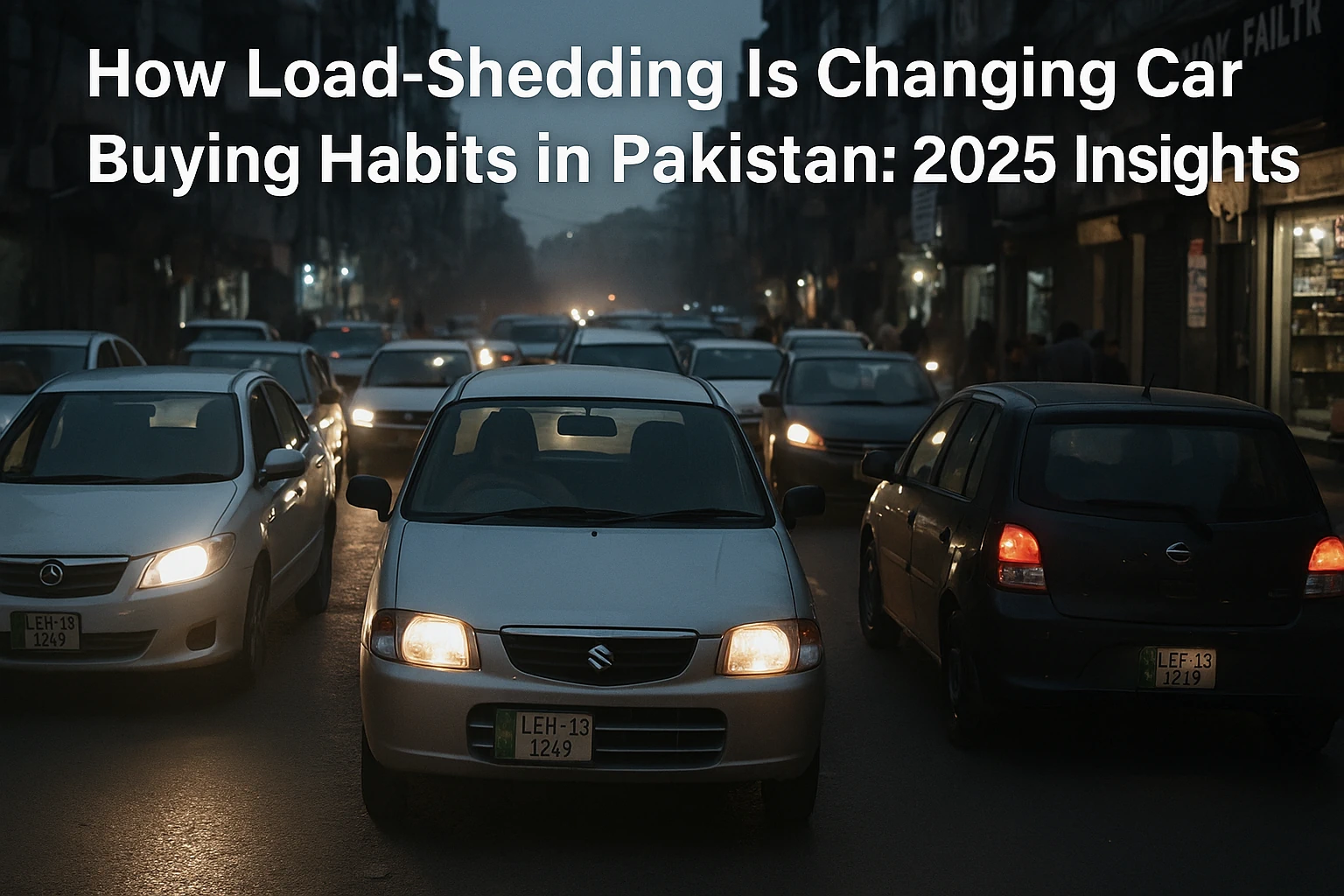
Power outages remain a daily hurdle in many parts of Pakistan—even in 2025. From major cities like Lahore and Karachi to smaller towns across Sindh, Punjab, and KP, load-shedding continues to disrupt daily life. But beyond just dimming lights and silencing fans, these power cuts are quietly reshaping how Pakistanis think about cars. In a market already shaped by inflation, high fuel prices, and restricted imports, unreliable electricity is now influencing what people buy, how they drive, and what features they prioritize. Let’s explore how load-shedding is driving a shift in car-buying behavior across the country.
Hybrids and Plugless Fuel-Savers Are Winning Over EVs
Electric vehicles may be the future globally, but in Pakistan, the present reality is very different. With daily load-shedding schedules and unpredictable power outages, fully electric cars are a risky bet for most households. Charging at home is unreliable unless you have a generator, and public charging stations are still rare outside major metros. As a result, buyers are leaning heavily toward hybrid vehicles—especially Japanese imports like the Toyota Aqua and Prius. These cars offer excellent mileage while still relying on petrol, making them a dependable option when the lights go out.
- Plugless hybrids don’t require charging and are ideal for urban traffic conditions
- Popular hybrid imports are now outselling locally assembled sedans in some cities
- EV interest remains high, but purchase intent drops in areas with heavy load-shedding
In short: Pakistanis want electric assistance—not electric dependence.
Fuel Efficiency Is a Bigger Priority Than Ever
Load-shedding isn’t just an issue at home—it affects traffic flow too. Signal outages, non-functioning traffic lights, and slowdowns during power cuts all lead to longer idle times and stop-and-go driving. This has made fuel economy a top priority for buyers across income levels. Compact cars with 660cc–1000cc engines, idle stop-start systems, and efficient CVT transmissions are now more desirable than ever. Whether it’s for daily commutes, ride-hailing work, or grocery runs, people want cars that sip fuel—not guzzle it.
- Models like Suzuki Alto, Cultus, and Mira dominate efficiency rankings in city driving
- Long idle periods in traffic during outages are fueling interest in smaller engines
- Sales reps now highlight “idle consumption” during test drives
When the streets stall due to power failure, only the most fuel-efficient survive the daily grind.
Battery Life Anxiety Is Real—Even for Petrol Cars
You don’t need to own an EV to worry about your car’s battery in Pakistan anymore. With frequent and prolonged load-shedding, many people can’t charge or replace their car batteries easily—especially those relying on UPS or inverter backups at home. Even petrol cars are affected: poor voltage during charging, long intervals between drives, and limited workshop access all contribute to battery degradation. As a result, buyers are opting for vehicles with simple, reliable battery systems that are inexpensive to replace and readily available in the local market.
- JDM vehicles with non-standard or expensive batteries are being avoided
- Preference is rising for cars with easily swappable 12V systems (e.g. Suzuki WagonR, Cultus)
- Battery lifespan is now a bigger part of the purchase discussion—especially in semi-urban areas
With unstable electricity and limited technical support, a reliable low-tech battery setup is worth its weight in peace of mind.
Rise in Demand for Manual Transmission Vehicles
While automatics have become more common in Pakistan over the last decade, load-shedding is reviving demand for manual transmission cars. Why? Because they’re simpler, less electronics-dependent, and less likely to stall or fail when voltage drops or sensors malfunction. In areas where power cuts are frequent and voltage fluctuations are severe, people are actively avoiding cars with CVTs, electric gear systems, or automated climate control. Manual cars are seen as “load-shedding-proof”—more rugged, more repairable, and more independent.
- Older Civics, Corollas, and Cultus models with manual gearboxes are gaining resale value
- Mechanics recommend manual cars for buyers in rural and low-voltage regions
- Entry-level drivers and ride-hailing workers are choosing manual cars to avoid complexity
In a country where even your electric gate might stop working without warning, simplicity is a serious asset.
Generators and Inverters Fuel Home-Based Charging—But Only for Some
For upper-middle-class buyers and early EV adopters, generators and solar-powered inverters are the new lifeline. Some households have created dedicated charging setups for plug-in hybrids or small EVs like the MG ZS EV. But for the average Pakistani buyer, these setups are financially out of reach. Even for those with backup systems, charging a car overnight drains inverter capacity quickly—making EV ownership viable only for a privileged few. Until grid stability improves, EV growth will be slow and limited to high-income, urban enclaves.
- Home-based charging setups require 5–7kVA+ backup systems—not affordable for most
- EV sales remain urban and elitist, with limited penetration in Tier-2 or Tier-3 cities
- Plug-in hybrids are a compromise—but require careful load balancing on household power
In short, while home charging is technically possible, it’s not yet practical or scalable for the majority.
Resale Preferences Are Shifting Toward Self-Sufficient Vehicles
In a country where power outages are unpredictable and often lengthy, car buyers are increasingly prioritizing vehicles that can “survive” without dependence on infrastructure. This trend is now directly impacting resale value. Cars that are easy to maintain, don’t rely on battery-heavy systems, and can be repaired in any small workshop are seeing greater demand in the secondhand market. Even older models—like manual Toyota Corollas, Suzuki Mehran, or Honda City with minimal electronics—are holding value better than newer, feature-loaded vehicles that require stable voltage or specialized servicing.
- Simple, rugged cars have become resale favorites, especially outside major cities
- Buyers are asking resale value questions based on battery/ECU dependency
- Load-shedding is now a factor when calculating total cost of ownership
Whether buying or selling, “electric independence” is now part of a vehicle’s appeal—and value.
Automakers and Dealers Are Pivoting Messaging
Dealers and car brands in Pakistan are not blind to the shift in buyer behavior. Marketing strategies in 2025 have evolved to meet new priorities. Instead of just promoting features like infotainment or automatic climate control, automakers are now emphasizing fuel economy, hybrid reliability, battery life, and minimal electronic complexity. Some showrooms are even offering “generator-compatible” EV packages—targeted squarely at wealthier buyers who want to drive electric without power stress.
- Ads now highlight mileage, battery replacement cost, and low idle consumption
- Hybrid imports are being marketed as “energy crisis friendly” solutions
- Some automakers are delaying full EV launches in areas without reliable power grids
The smart sellers in 2025 are those who acknowledge Pakistan’s energy reality—not just chase global trends.
Conclusion
Load-shedding has always been a nuisance in Pakistan—but now, it’s a force that’s quietly reshaping the automotive landscape. From what cars people buy to how they use and maintain them, energy insecurity has made resilience more important than luxury, and simplicity more desirable than cutting-edge tech. Hybrids, small fuel-savers, manual transmissions, and rugged old-school models are winning the trust of Pakistani drivers in 2025.
For car buyers, the key question has shifted: it’s no longer just “how much fuel will it use?” or “what’s the EMI?”—it’s “will this car still work when the power goes out?”
And for automakers, that’s a signal worth listening to.



